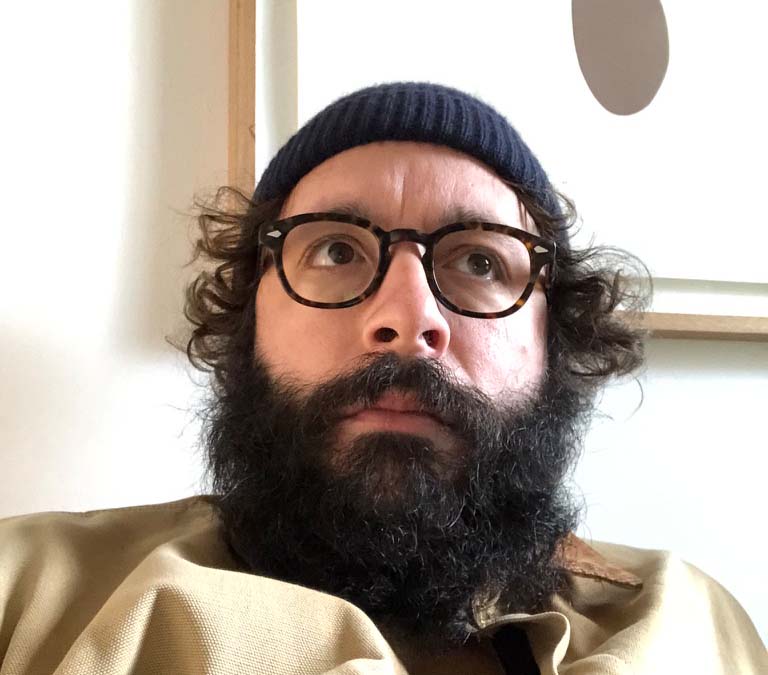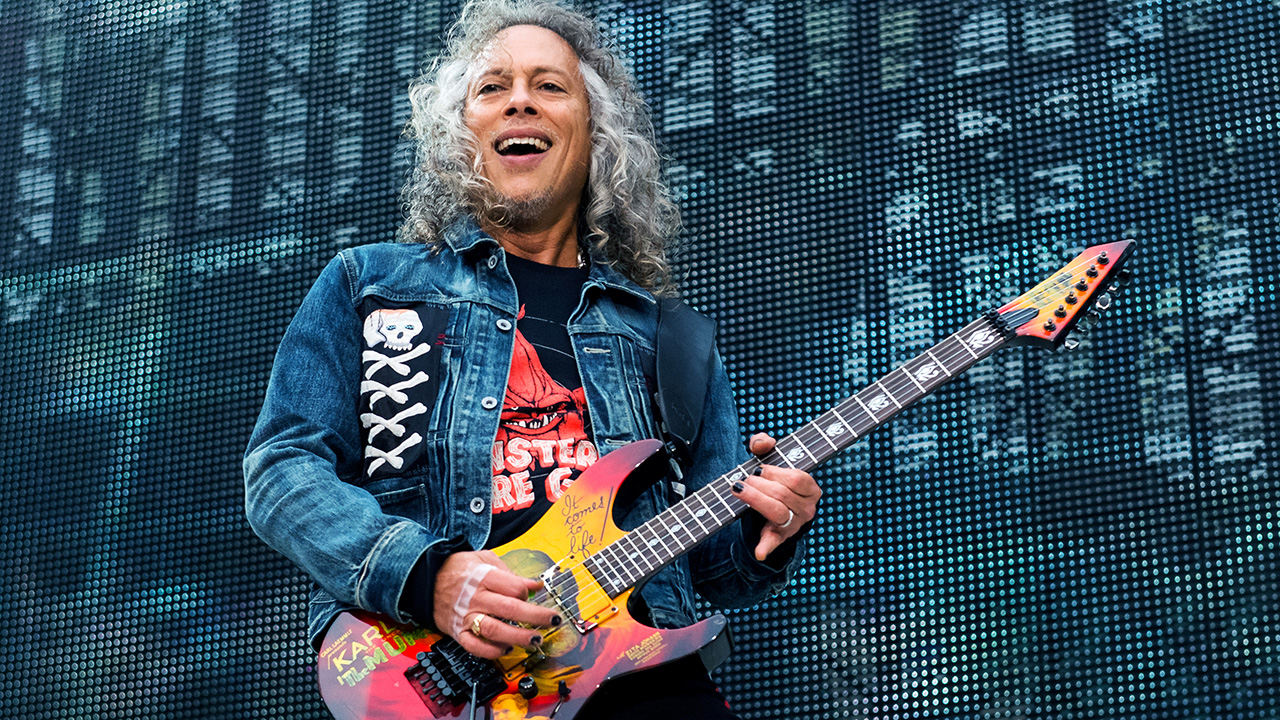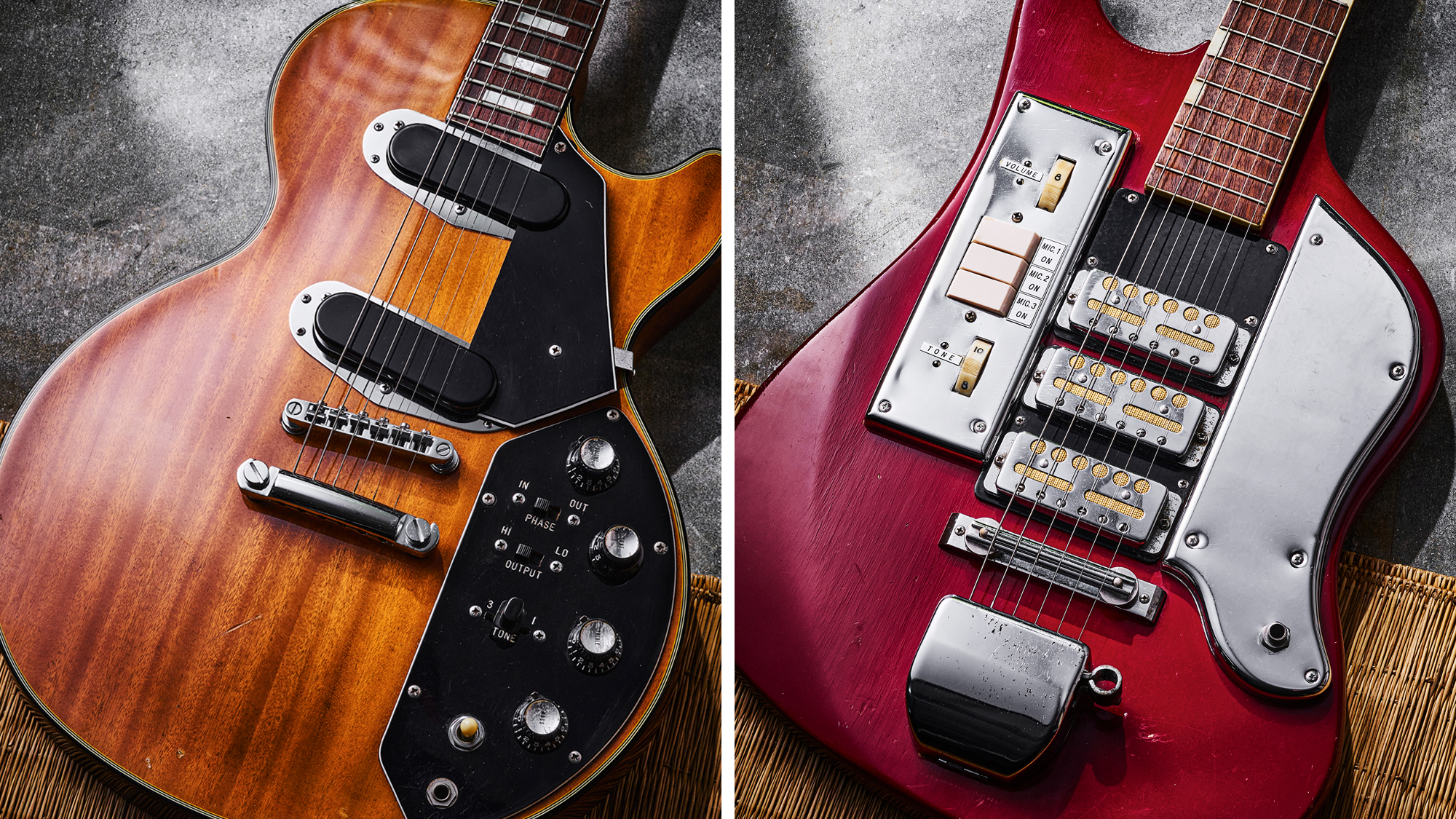Shooter Jennings: "Marilyn Manson's miraculous poetic ability doesn’t grow cold, like a lot of people’s songwriting"
Manson's guitarist and producer discusses the enigmatic singer's new album We Are Chaos, the pair's eerily similar musical taste, and why his favorite amp is a Gallien-Krueger
![[L-R] Shooter Jennings and Marilyn Manson](https://cdn.mos.cms.futurecdn.net/hHJMTrHFz9u6GGDnPWTeub.jpg)
Marilyn Manson’s new album, We Are Chaos, is a record steeped in the anxiety, tension and degeneracy of our present moment. It’s Manson, so it’s provocative and louche, the alien hustle of electronic pop and new wave periodically upended by the danger of electric guitar and industrial steel.
There are acoustic guitars, too. Big songs and big ideas. Written and produced with Shooter Jennings, it sees Manson resume the role of America’s enfant terrible and of that of the chronicler at a remove - what else affords him such an uncanny second second sight that allows him to find the pressure points and skewer American moral contradictions?
As Jennings - son of Waylon, Grammy winner - picks up the phone, the sky around his house in LA is burnt orange as wildfires rage unabated. He has to duck out at moments because his son is being being home-schooled because outside a pandemic rages, unabated.
We Are Chaos? That’s almost too on the nose for these times. But Jennings is in good spirits. He has country in the blood, writes, records and plays it, too, but it was industrial music, Nine Inch Nails, Ministry and Marilyn Manson that got him into music, that got him playing guitar. This record is a big deal.
Jennings met Manson in 2013 via Twiggy Ramirez. Manson was a fan of Jennings’ Black Ribbons, an album recorded with his band Hierophant and narrated by horror author Stephen King.
"I went over to his house and we hung out and it was pretty wild,” recalls Jennings. "I was a big fan, and so to go over to his house and hang out with him one-on-one was very surreal, because I didn’t know how to act.
"But he was so welcoming and warm, and complimentary… And nice to me. [Laughs] We would go out, go do stuff together. Like, there would be times I’d be like, 'You wanna come over and drink Coors Light and watch TV?' And he’d be like, 'Yup.'"
Get The Pick Newsletter
All the latest guitar news, interviews, lessons, reviews, deals and more, direct to your inbox!
So there it was, Manson and Jennings bonded over beers, TV, and of course music. Manson was doing The Pale Emperor with Tyler Bates. Jennings had his own thing going on but it was only a matter of time before they would collaborate.
"Kurt Sutter, who created Sons Of Anarchy, had written this song lyrically to be in the very final episode, and he wanted me to write music to it," says Jennings. "I worked it out, and then I had the idea, 'Why not get Manson sing this? Instead of me singing it, it would be a lot cooler if Manson did it.'
But he was so welcoming and warm, and complimentary… And nice to me. [Laughs] We would go out, go do stuff together
“Me and Manson worked on that song for a little bit, and we liked it, and that was the first time we had worked on anything together. We liked it, but I think it was never really right for either one of us.”
The song, Join The Human Gang, ended up being rewritten as Come Join The Murder and performed by the White Buffalos, but Manson and Jennings had other projects. Jennings was doing a Giorgio Moroder tribute record and had Manson sing Cat People on it. Now, things were clicking.
"I went over to his house and that’s when I discovered that he sings his best at 3.30am," laughs Jennings. “On the dot. Like, no matter what time you start singing with him, 3.30am is the magic hour. That’s the magic moment, every time.
"I only had one set of headphones at the time, and I brought this whole rig over to his house, and he was sitting there, singing on the Pro Tools track, and I was just sitting in the room with no headphones, and I can just hear Marilyn Manson in the room singing Cat People with no music or anything! [Laughs] Just his voice echoing off the walls."
The pair covered The End for the TV adaptation of Stephen King’s The Stand but the Doors nixed it for them "taking liberties." No matter, they knew they could work together and when 2018 swung around, that time had come…
But the question is: just how do you start writing and producing a Marilyn Manson record? As Jennings explains, with "fear and joy.'
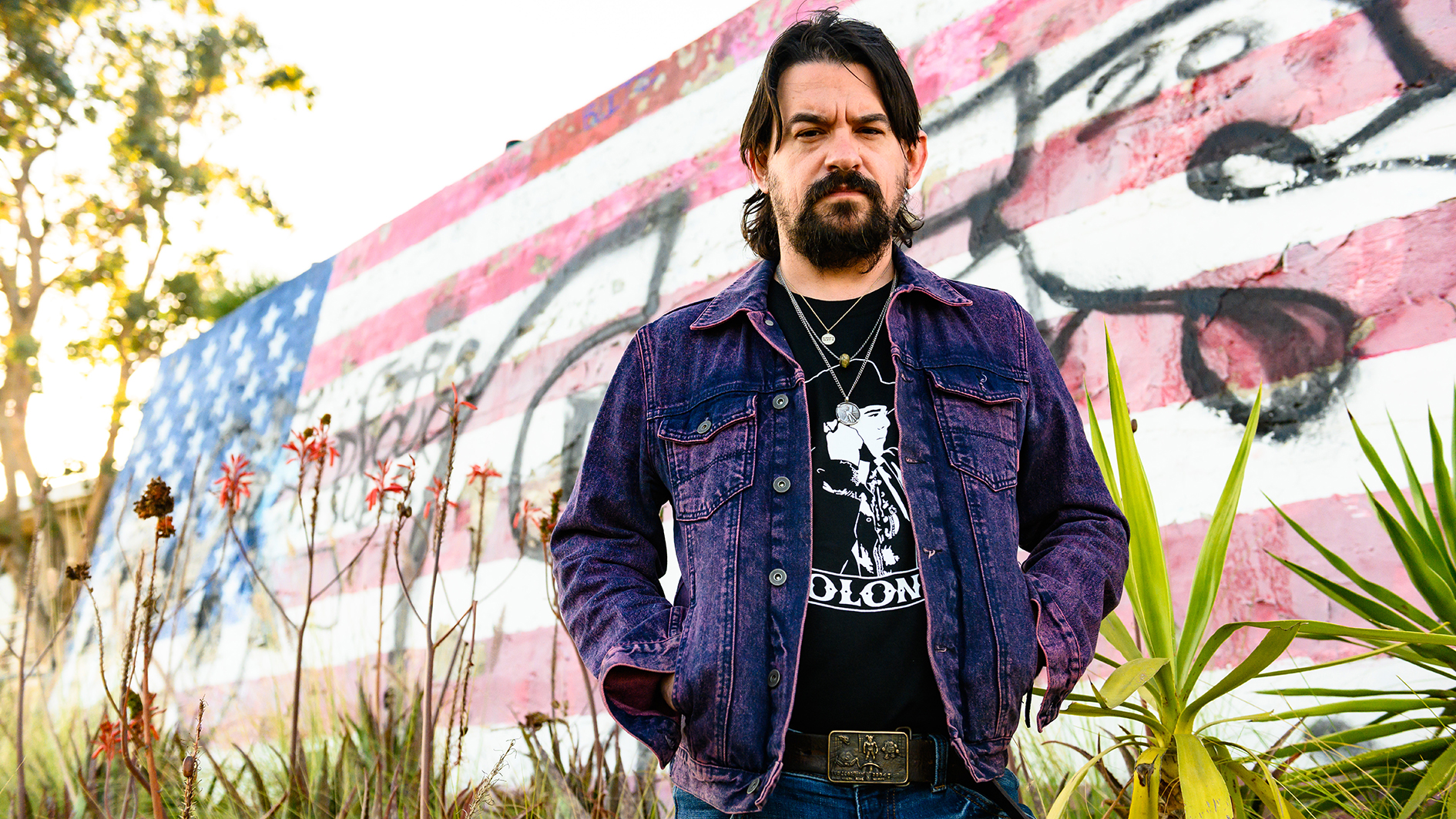
So you and Manson are friends, you’ve collaborated. How did We Are Chaos start?
"Right after the Doors thing happened he said, 'I want you to produce my next record.' And I just remember fear and joy at the same time because I did not want to fuck this up! The first thing we did, we went into the studio, we recorded Don’t Chase The Dead.
"It was just me and him, and my drummer Jamie Douglass at Station House Studio, and we went in there and spent about five hours, and came out with the bare bones of that song, and that’s kind of what kicked the whole thing off."
That is a great track.
"Yeah, and we did that together. That is why it is produced by me and him. We sat in several different studio settings but really the majority of it was done in my home studio and the home studio he built in his house.
We sat in several different studio settings but really the majority of it was done in my home studio and the home studio he built in his house
"At the time he was moving, or remodeling his house, which was already very close to my house, but he rented a house here in LA that was, like, a minute away from mine, just at the bottom of my hill, so we were kind of connected and always together for those two years."
That sounds intense.
"Both nights, after the Grammys, when I was lucky enough to take home a Grammy, those nights I went into the studio with him right after the Grammys were over. It was like we were always working. We sat in the studio like that, and we were both very unified on what we wanted, just because we liked the same music."
And that’s really how you bonded, right? You have very similar tastes…
"I couldn’t believe how much of the exact same music we loved. If there was a band and we only liked one song by that band, we both liked the same song – you know what I mean? We had so much in common musically."
What was the writing process like?
"When we went into this, it started with me coming up with musical ideas and then us evolving them into things, but it eventually became this thing where we would just start from scratch in a room.
"We’d start with a drum beat, or listen to a song that we liked, and the kind of guitar tone that was going on, and then emulate what was going on with that. I would come up with something different then it would be borne out of that song."
I couldn’t believe how much of the exact same music we loved. If there was a band and we only liked one song by that band, we both liked the same song
Manson has an amazing vocabulary for musical references and mood. It’s very cinematic.
"He was just really good at reigniting my love for a lot of things that I hadn’t listened to in a while, things that I loved and he loved. He’s a big gift giver and generous as hell.
"Very early on he gave me the David Bowie A New Career In A New Town vinyl collection, of the Berlin Years from ’77 to ’82. It’s got all the Heroes outtakes on it. I knew all of that stuff, but having the vinyl, having all these alternates, listening to all that, it was definitely soaking in."
Understanding those Bowie deep cuts is a good window into what he is all about.
"At one point he really opened up and said, ‘Y’know, when I was a kid, I heard this album and I knew that is what I want to do.’ That is really fascinating to me because he heard Ashes To Ashes, the song Scary Monsters, and he knew exactly what he wanted to be. I felt the same way about Antichrist Superstar."
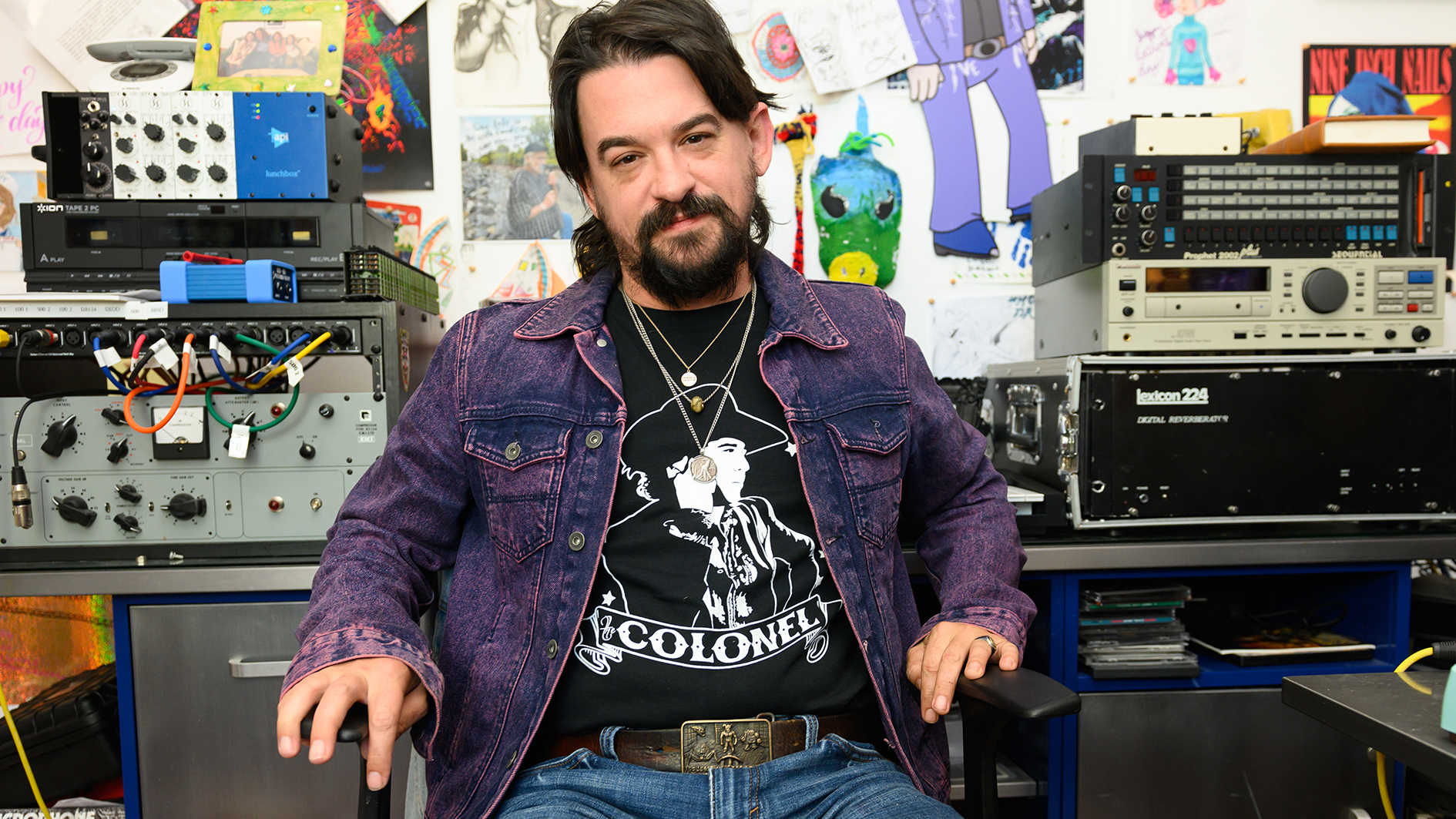
You mentioned him referencing the guitar tone on Bowie’s Fashion. What did you use in the studio for tones?
"There are two amps that we basically used for this whole record. Some things that were done in overdubs, like on Keep My Head Together, my guitar player, John Sheffler, did some of the environmental stuff that’s going on there. I did the solo but there are parts that are real ‘verby and that was done in the studio with a Twin or a Deluxe Reverb.
"And then there’s some pedal steel that he did that shows up on a couple of songs, and that was done with maybe a Princeton or something. But the majority of the record, and all the shit that I did and the main rhythm parts and everything, was two amps.
The Gallien-Krueger GK250 is the best amp I own - it is the coolest amp I own
"The Gallien-Krueger GK250 ML Series 2, which has two speakers on it that you can mic in stereo and was the majority of the sound, And I got this little Super Champ from Fender."
That’s the first time in forever those amps have come up in conversation, but the GK250 is cool. It’s an Alex Lifeson amp.
"That amp is the best amp I own. It is the coolest amp I own, and it also has this fucking chorus button on it and this chorus button is what the sound is while we are getting those huge tones on Red Black And Blue for the chunking guitars.
"On Paint You With My love, the chorus is that Gallien-Kruger with that chorus button on, kinda getting that dirty… It sounds like Ziggy Stardust guitar. That amp can really morph sounds well. It can change just depending on how you adjust the knobs."
What about the Super Champ?
"The Super Champ is just a cool alternative. That thing is magical. You can dial in Jimmy Page or you can dial in the Beatles, or fucking Eric Clapton if you want, so that would be really good if we would do a second track. Instead of using the same two sounds for every song we would completely change out pallette for certain songs.
"We would be using the Gallien-Kruger for one with the SG, and then the next song we would be using the Super Champ. Then the next song we would be using the Super Champ but we would also be using an acoustic through the Super Champ.
“There were some things that we went solid-state for, some other pieces of gear we had at the very beginning. Manson was like, 'We’ve gotta have an H910,' I always wanted an Eventide H-10 but he was like, 'This is the David Bowie sound!'"
On We Are Chaos, we were going for that glimmery, not quite 12-string - it’s like that movie Tropic Thunder, you never go full 12-string!
What about guitars?
"I have two SGs. My Dad gave me a black SG in 1999 for my 20th birthday, and it was a brand-new SG and I have had that guitar the whole time. That guitar lives in my studio.
"Then I have a white SG, that is all 1963 original parts but it was assembled, like Dave Cobb bought it for me years ago, ‘cos he was trying to encourage me to play the guitar more. The black SG is the one that I play on 99 per cent of this record.
"Manson had an Airline guitar. He had some odd guitars. Like he has this one that’s this really heavy guitar that he wrote the Beautiful People on, and he would break those out every once in a while and sometimes when Manson would play something on the record he would bring the Airline over, or he’d get me to play it."
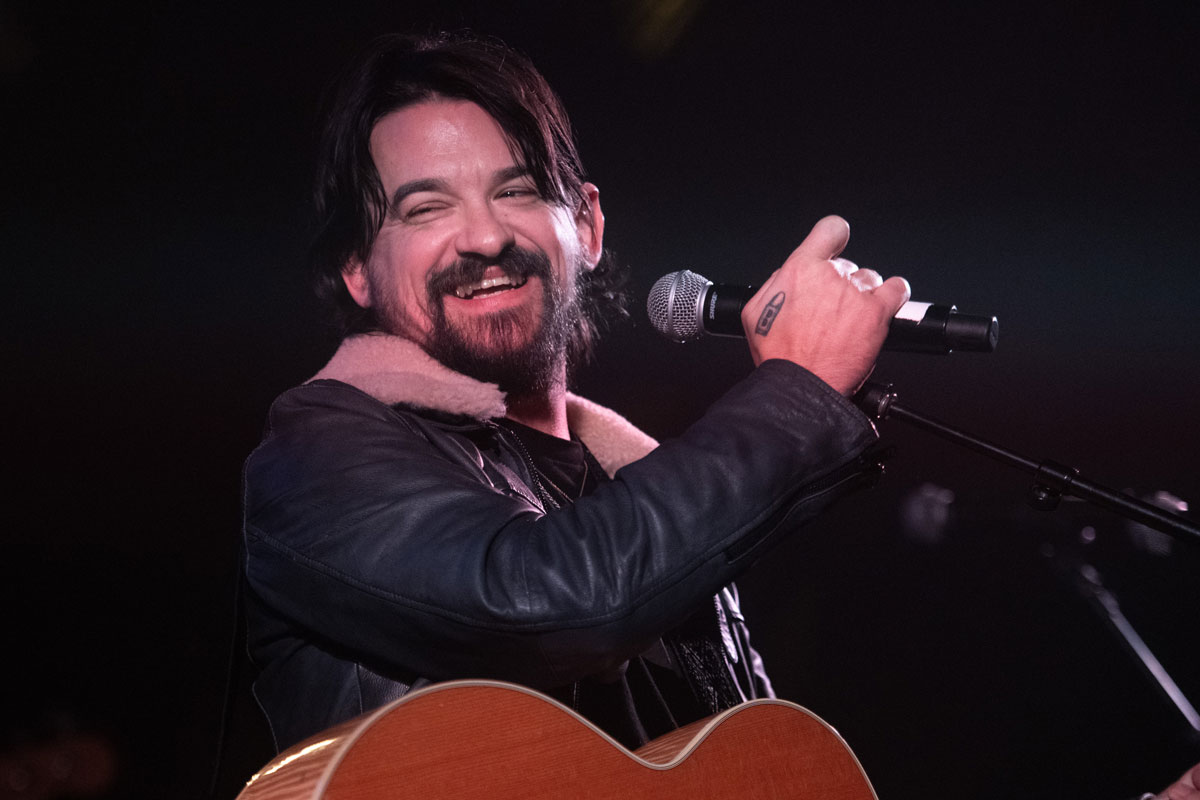
Did you write on acoustic?
"I wrote the demo for Don’t Chase The Dead on acoustic, and then when we cut it it became electric. But on certain songs the acoustic was used to add layers, to add steps to it. But then on We Are Chaos, that was a Nashville-stringed acoustic that I played doubled.
"On that song we were going for that glimmery, not quite 12-string - it’s like that movie Tropic Thunder, you never go full 12-string!
"But the Nashville tuning kind of adds that Jeff Lynn vibe. It was brought in to bring that Elvis meets Jeff Lynn vibe. Nashville tuning gives you the glimmer but you don’t have that whole fucking hippy, '60s peace thing going on. Otherwise it was this Gibson Hummingbird that was on everything, and really I feel it greased the wheel."
The Hummingbird was the main acoustic?
"I have this Gibson Hummingbird that Dave [Cobb] lent to me and I used that on everything on this record. Because to me, that and an AKG451 mic, that’s the mic that Bob Dylan used on Tangled Up In Blue. On a song like Keep My Head Together there is the riff, that’s actually played on the Hummingbird.
"I had a mic going into the Super Champ, right on it, really close, and I was playing it really, really quiet, so quiet and so compressed that it became really big, so it sounds like an electric that you can’t really identify but it’s really the Hummingbird that’s been mic’d closely and put through an amp and played extremely quietly.”
You learned guitar to Antichrist Superstar. What was it like playing on this record?
"It was really him pushing, pushing, pushing me, to be confident in my lead ideas, and because of that I played more on this record. I played bass on a lot of songs. I played, of course, a lot of keys. I programmed a lot of drums. All the drums are programmed, and then a lot of lead guitar, and I had never done that.
"That was just because of his encouragement and him saying, 'Don’t say you can’t do this - just do it!' And I’d be like, 'Yes, sir!' [Laughs] It was pretty cool, man. I look back on it and he made me a confident lead player.
"I have much more confidence just picking up a guitar and doing a lead part because I can always remind myself that I did all those parts on this record. That’s a cool thing from this record that I’ll have forever."
Marilyn Manson pushed me to be confident in my lead ideas, and because of that I played more on this record
Finally, where do you place Manson on the pantheon of American songwriters?
"I think the reason he has outlasted everyone - besides his musical taste - is that, as a writer, and as an interpreter, I think that he stands shoulder-to-shoulder with people like… Well, David Bowie would write a song like Modern Love, that had these parts and it was kind of doo-wop, but Manson is more like Dylan; it’s really more like Dylan or Lou Reed, or even like bands like Joy Division and stuff.
"It is this poetic side. That is what never gets old. It never gets dated because that poetic side of him, this miracle ability, just gets better and better as the years go on. It doesn’t grow cold, like a lot of people’s songwriting.”
Jonathan Horsley has been writing about guitars since 2005, playing them since 1990, and regularly contributes to publications including Guitar World, MusicRadar and Total Guitar. He uses Jazz III nylon picks, 10s during the week, 9s at the weekend, and shamefully still struggles with rhythm figure one of Van Halen’s Panama.
“I wanted to play more, and it was inappropriate with Eric or Roger. I was not the lead guitarist, and I wanted to be”: Clapton, Waters, Satriani and me – Andy Fairweather Low on his greatest collaborations and finally taking center stage
Celebrated jazz guitarist George Freeman, best known for his work with Charlie Parker and Gene Ammons, has died aged 97
